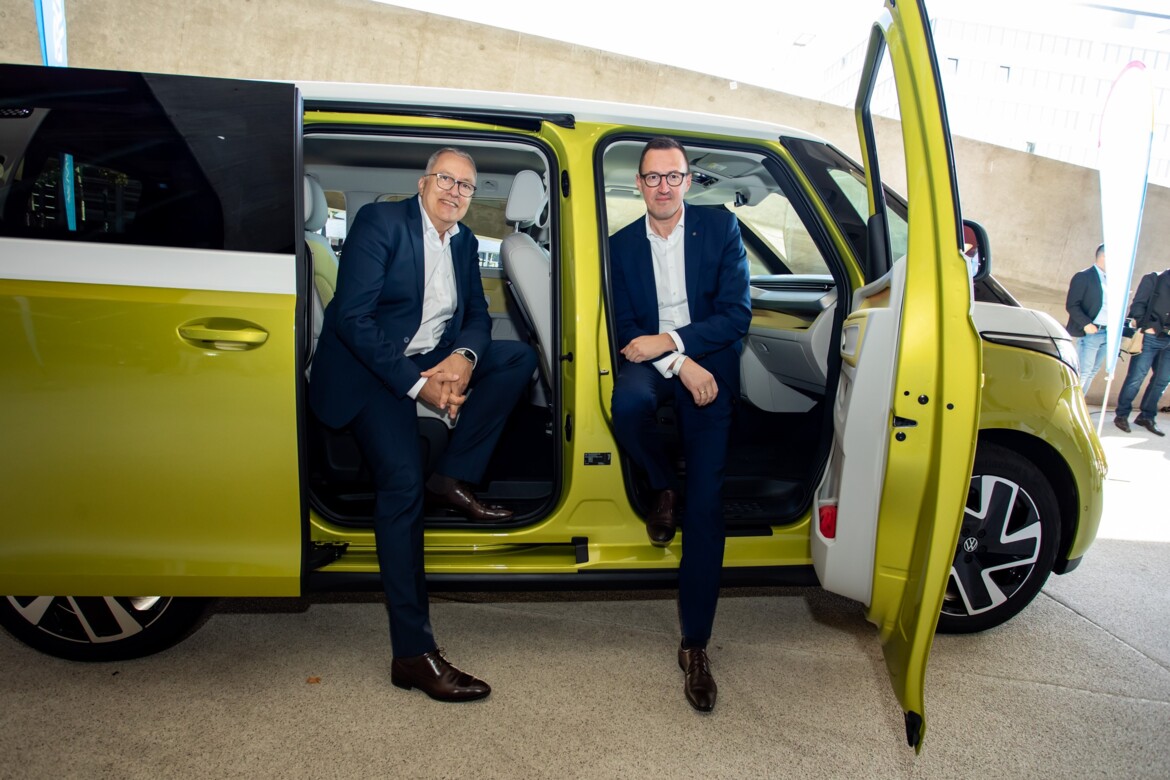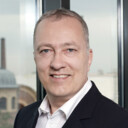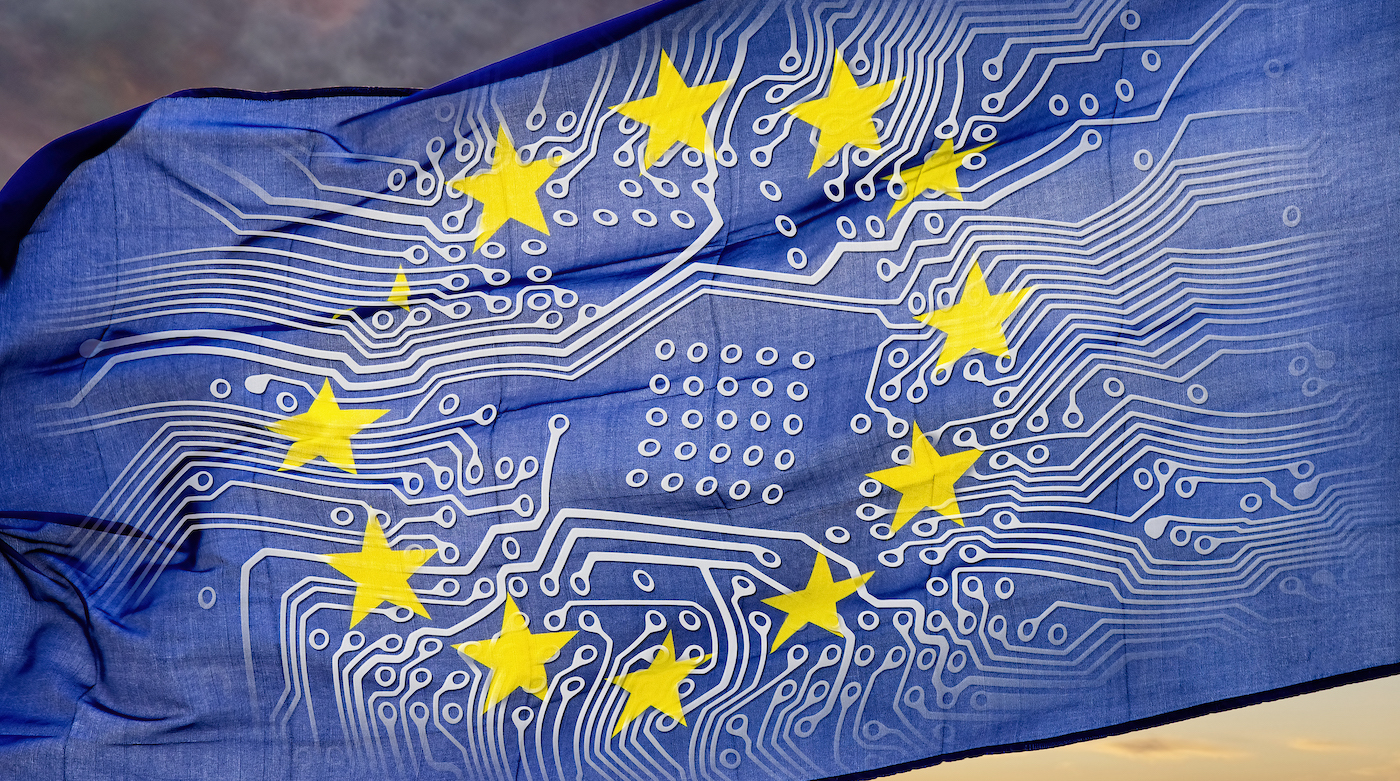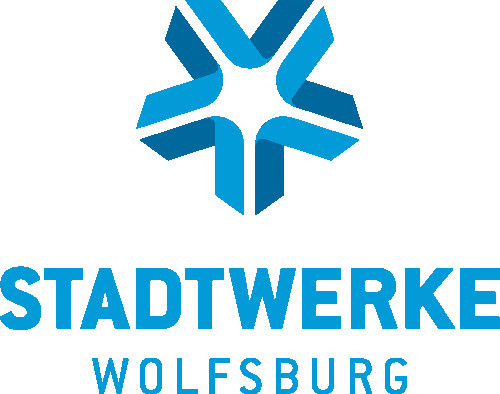Public Utilities: Central Architects of the Digitalized City
Andreas Weiss from eco & Dalibor Dreznjak from Stadtwerke Wolfsburg, on the opportunities & challenges of new infrastructures & technologies for the Smart City.

© NanoStockk| istockphoto.com
The progressive digitalization of almost all urban areas of life allows information and data to be linked. New, intelligent services are emerging for citizens, administrations, and companies. The basic prerequisite is future-proof infrastructures, the construction and operation of which are increasingly being taken over by public utilities. Because public utilities have a decisive advantage over large technology conglomerates – the locals’ trust. In addition, they have decades of experience in building urban infrastructures and a strong network of local partners, both of which are favorable to the development of attractive digital services. A conversation with Andreas Weiss (Head of Digital Business Models at eco – Association of the Internet Industry) and Dalibor Dreznjak (Head of Corporate Development and Communications at Stadtwerke Wolfsburg AG, Wolfsburg's public utilities) about the opportunities and challenges of setting up and developing new technical infrastructures and digital technologies and why public utilities could assume the role of local digital competency centers in the future.
Everyone is talking about digitalization – not only in private life, but also increasingly in the area of public administration. Everything that can be digitalized should be digitalized wherever possible. How great is the current pressure in public administration and public utilities to rely on intelligent concepts?
Andreas Weiss: In public administration, it has always been necessary to develop strategies or concepts that provide the framework for overall spatial and structural development. The basis for the future viability of cities, local authorities, and communities is sustainable urban development that addresses not only ecological but also economic and, of course, social concerns on an equal footing. And all of this, of course, on the basis of finances that are fair to all generations. So, this is not new. However, digitalization has the potential to become a real booster for increasing efficiency in many areas of public services.

This applies to buildings, mobility, services, security and much more. Procedural simplifications, such as a driving licence application, can be implemented quite well. But when we talk about innovative local public transport and mobility concepts, it quickly becomes complex because many areas have to interact. If you like, within the context of modern urban development, intelligence is associated with the great promise of solving very different urban development problems in one fell swoop through the use of digital technology. So, the goal is clear, but it needs a long-term strategy and the will of all those involved to take the leap into the digital age with conviction.
Accordingly, the establishment of digital infrastructure is of central importance for the digital transformation of cities. What role do communal enterprises play in their setup and operation?
Andreas Weiss: I see this as an important role, because regional competence and the management of the necessary properties and infrastructures can often be combined through communal enterprises. There are many possibilities to directly include the development of modern digital infrastructures within the scope of the already known work mandate. It is obvious that it is primarily communal enterprises that are best able to build and then also operate the modern lifelines, i.e., data and communication networks.
Dalibor Dreznjak: However, it must also be economical in the medium term, otherwise it will not work in the long run. Especially as a communal enterprise, we are always faced with the great challenge of formulating and achieving predictable figures to compensate for investments. Stadtwerke Wolfsburg AG and its subsidiary WOBCOM GmbH have invested more than 75 million Euro in self-financing for network expansion in the Wolfsburg urban area alone since 2017. However, it is not enough to be the motor of the public digitalization offensive; it must also achieve critical mass, whereby enough people are willing to actually use the new infrastructure. In addition to bandwidth, real-time availability, security or energy efficiency, there is another point that is of great significance…
And what might that be?
Dalibor Dreznjak: Collaboration. Modern IT infrastructures are always a prerequisite for developing digital technologies – that is clear. But in the second step, you also need objects that you want to look at and, at best, change positively. This requires not only an administration and communal enterprises, but also many partners from politics, business, science and society. In Wolfsburg, the impetus for change was already provided in 2016 with the #Wolfsburg Digital initiative between the city and Volkswagen AG. On the road to an interconnected city, it quickly became apparent that, in addition to a modern infrastructure, it would also be necessary to store and analyze data and derive specific measures from it to improve urban life, i.e., by using a data hub.
Stadtwerke Wolfsburg decided to build its own solution for the data platform. Why, and what are the special features?
Dalibor Dreznjak: As a rule, it is the public utilities to which citizens entrust their data, because a public utility, unlike a globally operating company, can be contacted locally and is thus firmly rooted in a city. What makes us in Wolfsburg a little different from other public utilities is that, with our subsidiary Wobcom, we have the digital competence in-house – a whole team of it! For this reason, we have pursued a holistic approach from the outset, looking at the entire technology tree: from the origin of the data (be it via an IoT device or other interface) to the communication path (fiber optics or e.g. LoRaWAN), to the processing of the data in the data center and in our Open Digital Platform (ODP), as well as the ultimate use of the data, e.g. in an app, management dashboard, or interface for further processing. Everything from a single source – made in Wolfsburg.
So will public utilities become the central city manager of the future?
Andreas Weiss: In the area of technical management, this is quite obvious. For holistic concepts relating to Smart Cities, however, much broader participation is required, coupled with distributed – but coordinated – responsibilities. In all scenarios, public requirements as well as those of the economy and citizens must be taken into account. It is about collaborative approaches that transcend individual departments and enterprises. A central function is the communal use of data to create added value for all participants.
Many citizens have concerns about the use of their data, with data security the buzz word on everyone’s lips. How can communal enterprises guarantee digital sovereignty and offer secure services?
Andreas Weiss: This is a very central challenge and the reason why we are discussing concepts such as Gaia-X in connection with data spaces. In Gaia X, we talk about federations, which are to be understood as collaborative groups in digital space. Within this context, collaborative rules and trust mechanisms are agreed upon. This also includes binding procedures for securing data and effective usage agreements. The fact that something like this is possible is shown by important initiatives such as Catena-X in the automotive sector and the Mobility Data Space being set up in parallel, along with a multitude of other projects such as Gaia-X4Mobility.
And when will our cities actually become smart?
Andreas Weiss: That will be defined by the users. But for this to happen at all, the elementary foundations must be laid: digital infrastructures for connectivity and data processing at the edge and in the cloud and the establishment of data ecosystems. Only with this can innovative applications develop that can be rated as “smart”. An online booking system for administrative procedures or a public transport timetable system without real-time reference are not part of this; they should have been the standard long ago.
Dalibor Dreznjak: In my view, it all hinges on urban society accepting that digital technologies represent genuine added value. Of course, this also requires a change of mindset: identifying weak points, allowing changes and, above all, realizing the cost-saving potential of an investment in the medium term. This will, in turn, expand the financial scope for other areas of public services and have a positive overall effect on the coexistence of people in towns and cities.
As Head of Digital Business Models at eco as well as Director of EuroCloud Deutschland, Andreas Weiss is well connected and familiar with the Internet and cloud industry in Europe. He brings his experience to Gaia-X Federation Services (GXFS), whose project teams are responsible for the development of Gaia-X core technologies. Led by eco, the GXFS-DE project is also funded by the German Federal Ministry of Economics and Climate Protection and is in close exchange with the Gaia-X Association for Data and Cloud (AISBL).
Dalibor Dreznjak has been working for Stadtwerke Wolfsburg AG for around 20 years. Initially as a clerk, then as a project manager, he has successfully passed through many stations in the company during this time. Since 2016, he has been in charge of corporate development at the Stadtwerke Group, and since 2018, he has also been responsible for managing the communications of the Stadtwerke and some of its subsidiaries, including entricon GmbH. He has already been a member of the management board at entricon GmbH since the beginning of 2021. Dreznjak was also Chairman of the Works Council (2010-2016) and a member of the Supervisory Board of Stadtwerke Wolfsburg AG (2011-2021).
Please note: The opinions expressed in Industry Insights published by dotmagazine are the author’s own and do not reflect the view of the publisher, eco – Association of the Internet Industry.







